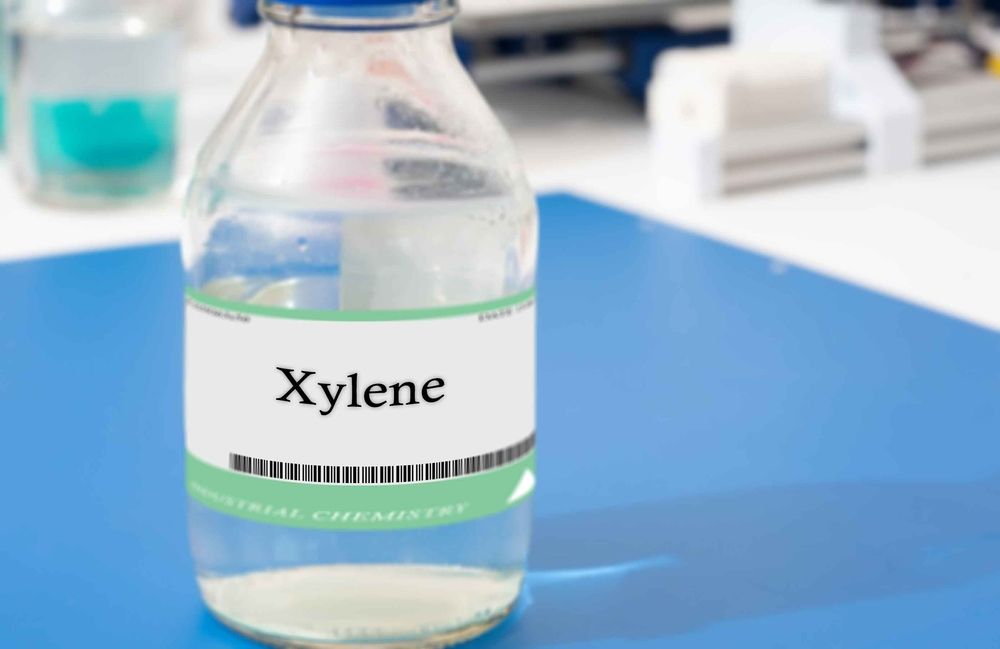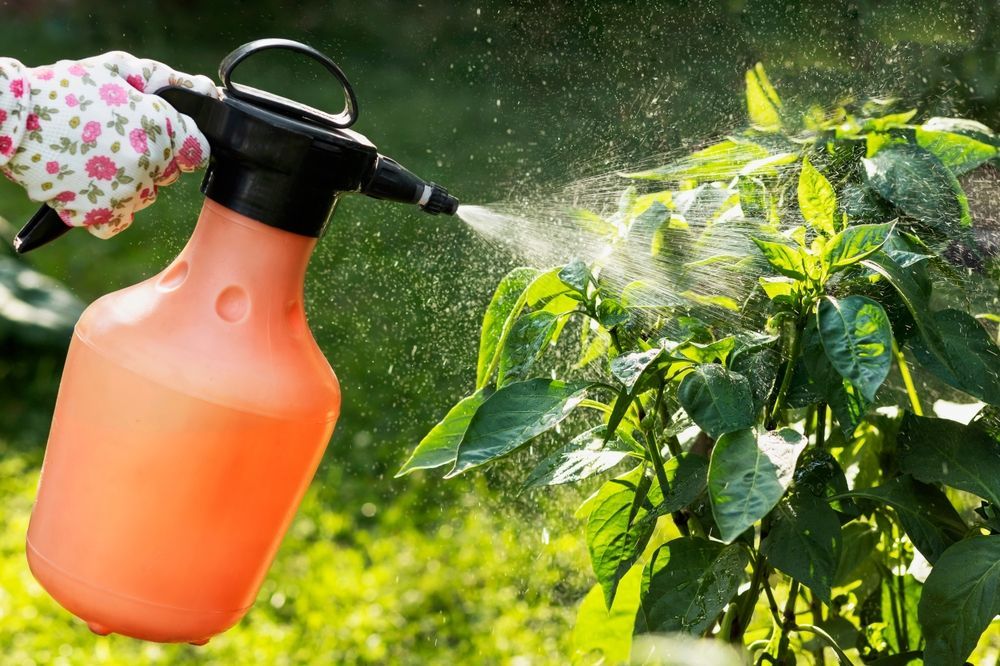Xylene Solvent: Uses, Effects, & Substitutions
July 17, 2024
Written by: Vertec BioSolvents

Whether they're painting, cleaning machinery on the factory floor, or spraying crops to keep pests away, people use xylene solvent every day without even realizing it. Xylene is one of the most commonly used chemicals across multiple industries, from medical labs to paint manufacturers. Unfortunately, it's also toxic and harmful to the environment.
In this post, you'll learn more about xylene and its applications. More importantly, you'll discover alternative solutions that can produce the same results while also safeguarding people's health and protecting the planet as a whole.
What Is Xylene?
Xylene is a colorless, sweet-smelling liquid present in many everyday products, including paints, glues, and sealants. Produced from petroleum, it's practically insoluble in water but combines well with other liquids and solvents. For that reason, it's a popular chemical despite its toxicity and flammability.
What Is Xylene Used For?
Xylene solvent has multiple uses in industrial, medical, and automotive environments. Some of the most frequent applications include:
- Paint and coatings: Many paint manufacturers use xylene as a thinner in paints and primers, and it's a common ingredient in enamels and varnishes. It's also present in many paint solvents because it can easily dissolve paints, resins, pigments, and adhesives.
- Cleaning agents: Xylene is popular in cleaning solutions due to its ability to remove grease and other stains. It's also useful for removing unwanted substances from steel and electronic components, including silicon wafers and integrated circuits.
- Pesticides: Residential and agricultural pesticides often contain xylene. It dissolves the pesticide to form a liquid that users can spray on crops or around their homes.
- Other uses: Other uses of xylene include printing, rubber and leather processing, and medical applications, such as tissue processing. It also serves as a lubricant in some motor oil and brake fluid.

Because of its wide-ranging applications, xylene is one of the most produced chemicals in the United States. Its original uses date back to the 1800s, when a chemist discovered its presence in wood tar. Today, you can also find it in many plastic products and some food items.
Effects of Xylene Exposure
Despite its popularity as a solvent, xylene comes with serious disadvantages. It threatens both humans and wildlife, particularly aquatic creatures and plants. Understanding the potential consequences of using xylene solvent is vital to reducing its effects on workers and the environment.
Health Effects
Studies have repeatedly shown that xylene is hazardous to human health. According to the Centers for Disease Control (CDC), xylene exposure can have these troubling short-term effects:
- Eye, nose, skin, and throat irritation
- Headaches
- Dizziness
- Confusion
- Loss of muscle coordination
- Gastrointestinal distress
Ingesting, inhaling, or coming into contact with xylene solvent in small quantities can result in these temporary problems. Depending on the extent of the exposure and the age of the person, the effects might last a few hours or several days.
The Environmental Protection Agency explains that workers who experience frequent xylene exposure can also develop
chronic health concerns. These issues are often neurological, including fatigue, tremors, and anxiety. Some people also experience lung and heart issues, such as heart palpitations, labored breathing, and severe chest pain. In the worst cases, high levels of xylene exposure can result in death.
Environmental Effects
In addition to harming humans, xylene is also dangerous to the environment. It can leak into soil, surface water, and groundwater during production, packaging, shipment, and use. Accidental spills can result in much larger amounts of xylene entering the environment, causing more severe and lasting contamination.
Although xylene quickly evaporates when it enters the air, it can remain in the water for longer periods. When it enters water sources such as rivers or ponds, xylene can harm or kill aquatic life.
Accidental spills can also result in the chemical leaching into groundwater and soil. This may damage agricultural and ornamental crops.
Substitutes for Xylene Bio-Based Solvents
While xylene is common, it's not the only choice for companies looking for powerful solvents. Bio-based solvents have the same strength without the health and environmental consequences.
The Benefits of Bio-Based Solvents

Petroleum-based solvents like xylene create health risks for painters, cleaners, and other workers and negatively impact the environment. Choosing a bio-based solvent allows you to achieve the same outcomes with minimal side effects.
For example, green solvents for the painting industry can clean epoxy, polyurethane, and other resins as effectively as other petroleum-based products. Unlike xylene solvent, however, they reduce volatile organic compounds (VOCs) and help keep workers safe and healthy.
Likewise,
bio-based solvents for industrial cleaning are useful for paint stripping, graffiti removal, and equipment cleaning. They're strong enough to quickly remove unwanted substances without harming the underlying surfaces. At the same time, they're biodegradable and have low VOC emissions.
Finding the Right Xylene Alternatives
Introducing xylene substitutes to your products and processes requires research and careful consideration. You'll need a replacement that's environmentally friendly and safe without sacrificing power and potency.
Vertec offers a line of BioSolvent products designed to meet those criteria. Our citrus-based solvents are an excellent option for removing paint, resins, epoxy, and polyurethane. They're also high-powered and reusable, so you can reduce your solvent usage and cut costs.
Another bio-based alternative for xylene is
VertecBio ELSOL XR. This solvent offers strong cleaning power with no pollutants or ozone-depleting chemicals (ODCs). For even greater environmental protection, ELSOL XR is also made from renewable resources and is easy to recycle.
Request a Sample of Vertec's Xylene Solvent Substitute
Xylene has been a go-to solvent for decades, but research and modern technology have made better options widely available. Choosing a bio-based solution protects workers, limits environmental damage, and creates a cleaner world. The best news is that you can accomplish all those goals without breaking your budget or giving up quality.
Vertec BioSolvents offers complimentary samples to allow you to
learn more about us and try our products risk-free.
Contact us to request a sample and discuss which solvents would be the best xylene solvent replacement for your needs.


